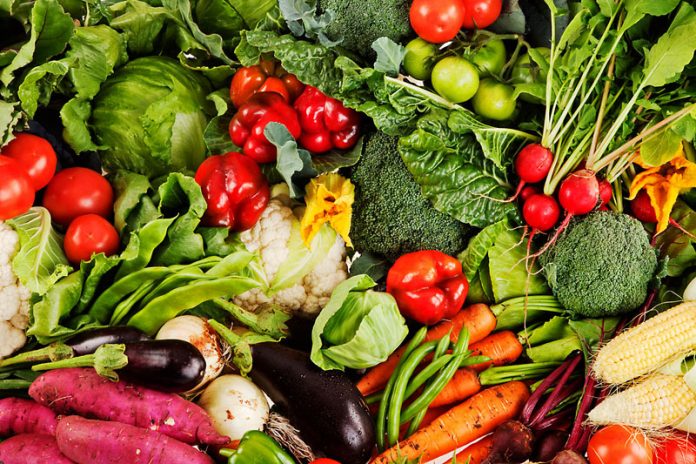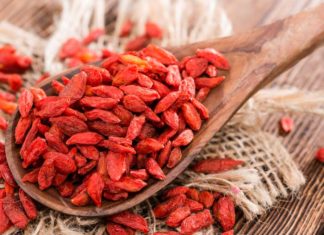
Organic fruits and vegetables are the pinnacles of natural health. The nutrition these items gives you is becoming more understood and known in our modern time. Within these fruits and vegetables, there are some that stand out for then the rest. Let investigate these super vegetables.
Organic Fruits and vegetables are known to be good for you. Daily consumption of organic fruits and vegetables will help improve vision, control weight, prevent cancer and cardiovascular problems. They are called miracle foods because it contains all the healthy nutrients essential for the body such as vitamins, minerals, fibre, etc.
Fruits and vegetables are indispensable food in our daily meals. Each type contains different substances and effects. Variety is the key when it comes to fruits and vegetables, while some may good for the eyes, another may be good for the digestive system. Whatever it is it is important to ensure that you eat key fruits and vegetables to give you the right nutrition. Eat according to your body needs and health. Vegetables are an amazing food group that is pack with antioxidant. Unfortunately, not all vegetables are equal. Plus vegetables are not as pleasant as fruits as it lacks in sweetness but can be bitter and harder to get used to. But hidden inside many of these vegetables are healing property for our body. In this article, we take to talk about some of the organic vegetables that are considered super or pack with nutrition that we should eat more of.
Broccoli
Broccoli is from cruciferous vegetable family. These Cruciferous vegetables are considered the powerhouse of nutrition. This is because they are pack with loads of nutrition but are low in calories. Some of its members are kale, cauliflower, cabbage, collard greens, turnips and so on. Broccoli is a good source of various nutrients: predominately vitamin A, vitamin B6, vitamin C, vitamin K, dietary fibre, folate, potassium, selenium, phosphorus and manganese. Besides, it includes phytonutrient glucosinolates, flavonoids and various other antioxidant compounds that boost our health in many different ways.

Broccoli is rich in fibre that is good for human health
Broccoli has so many vitamins and mineral that there are many health benefits. One of these health benefits is cancer treatment. Broccoli is considered to be a natural drug for many types of cancer, such as breast cancer, prostate cancer and cancers of various internal organs like liver, lungs and colon.
In addition to preventing breast cancer, scientists also discovered that broccoli contains compounds that promote the body’s production of sulforaphane. Animal studies have shown that sulforaphane has the potential to kill H pylori and ulcers. Sulforaphane inhibits the enzyme histone deacetylase (HDAC). HDAC encourage cancer cell to expand. Sulforaphane has been found to slow down even, held back cancer cell from forming and growing. Studies have found a significant positive result in melanoma, oesophagal, prostate, and pancreatic cancers. So eating broccoli daily would be good for the stomach, especially those who are showing signs of stomach pain.
Due to its high content of vitamin C removes toxins and free radicals are one of it another benefit. Vitamin C is considered a fruit vitamin, but vegetable or in this case broccoli has abundant of this vitamin too. A cup of broccoli provides us with 81 milligrams more than enough vitamin C for the day.
Removing toxin and free radical by its high content of antioxidant that helps remove uric acid from the body to purify the blood and protect the body away from dangerous diseases like gouts, eczema, itches and rashes, etc. Not only that it helps to maintain healthy and glowing skin. Vitamin C helps the formation of collagen, promoting youthful skin and ageing. Another youthful skin promotion broccoli has vitamin A and E which broccoli also have.
Broccoli also promotes eye health and protect your eyes against macular degeneration and cataracts. The reason why Broccoli is so good for your vision is that it contains substance like Zeaxanthin, beta-carotene, vitamin A, phosphorus, B complex, C, E and other vitamins.
Eating this vegetable can help prevent heart diseases, maintain a healthy heart. Its’ high fibre content, omega-3 fatty acid and abundance of beta-carotene, and other vitamins that help decrease bad cholesterol and keeping the heart functioning properly through regulating blood-pressure.
Sweet potato
Sweet potatoes are very popular with Australians. The main ingredient of sweet potato is starch, but it is also rich in fibre, vitamin A, vitamin C and vitamin B6. Because of these advantages, sweet potato offers many benefits for our health.
Animal studies have shown a link between sweet potato consumption and steady-state blood glucose levels. One of the reasons is that sweet potato contains a lot of carotenoids. Many researchers have proven that carotenoids have the function of regulating blood glucose levels. Sweet potato also has the potential to reduce insulin resistance. Insulin is essential for the body to unlock cells, so insulin resistance means that the cells do not respond to insulin, and they do not allow the blood glucose to enter the cell naturally to nourish it.

Sweet potatoes are good for those who want to lose weight
Besides, the rich source of fibre in sweet potato also works well for people with diabetes because fibre acts to lower blood glucose levels by reducing the rate of food is converted into glucose to be absorbed in the blood. Also, because of the complexity of carbohydrates, sweet potato can help control body weight.
Sweet potato is also an excellent source of vitamin C. Vitamin C, and other minerals and vitamins is an antioxidant that fights off free radiation exist or penetrate our body. Free radicate is said to damage your cell and cause disruption cell hence our body. Sweet potatoes with high pigmentation are said to have Beta-carotene, which is said to be a powerful antioxidant. This antioxidant is said to help your respiratory system, vision and skin.
By being high in vitamins, C and high in antioxidants helps prevent colds and influenza viruses. At the same time, vitamin C is also essential for bones and teeth, good for the digestive system and the formation of blood cells. Vitamin C contributes to wound healing, creating collagen that keeps the skin youthful, reduces stress and protects the body from toxins that bring the risk of cancer. Vitamin A in sweet potato allows us to maintain our bright eyes and healthy skin.
Sweet potatoes are high in magnesium which is very good for stress. The Los Angeles Department of Public Health indicated that magnesium in sweet potatoes is a natural go-to mineral for destressing. This mineral encourages calmness, relaxation and good emotional state.
Sprouts
According to many studies, sprouted vegetables contain a variety of amino acids, vitamin B, vitamin C, vitamin E and vitamin A with high content. Not only that, they are rich in fibre and minerals like manganese, copper, zinc, magnesium, iron, and calcium, which are essential for your health. Organic sprouted vegetables are considered the best organic food in the world. Thanks to the richness of vitamin, sprouted vegetables help the body to increase resistance, keep the skin smooth and fresh. The abundant vitamin E in sprouts help slow down the ageing process and increase vitality.

Bean sprouts are a familiar dish in Asian meals
A study by Australian scientists found that almost all types of sprouts, especially white radish sprouts contain glucosinolates (GSL). When chewed in the mouth, this substance turns into isothiocyanates (ITC) and help the body fight cancer, cell dysfunction. Also, the antioxidants in the sprouted vegetables help protect you from radioactive and toxic chemicals from the environment. At the same time, the two active substances phytoestrogen-genistein and daidzein, which are the female hormones, are available more in bean sprouts than in soybeans.
Sprout has an extraordinarily high level of enzymes. This means that is extremely good for your digestive system, increasing the digestive function, breaking down food effectively and efficiently, increasing it nutrition absorption. In its way preventing or helping constipation, diarrhoea and colorectal cancer.
However, not all sprouted vegetables are edible. Remember not to eat cassava sprouts and sweet potato sprouts because they have high levels of glucoside that make you susceptible to poisoning.
It is important to note that sprout when heated losses it nutritional value. Therefore it is important to consume them raw.
Asparagus
Asparagus has many preventive and healing effects. It is rich in vitamin A, C, E, K, B6 and minerals such as iron, copper and folate. It also a good source of protein, and has no fat and almost no sugar. In its composition, there are many important nutrients for the body. Medical experts recommend the use of asparagus as a diuretic; it is good for kidney and the control of glycemic that speeds up the body’s metabolism.
Because asparagus is rich in potassium, it helps regulate blood pressure. Asparagus also contains a lot of folate and fibre, which can dissolve cholesterol in the blood and furthermore has a laxative effect.

Asparagus can help prevent cancer
Asparagus is high in vitamin K, studies have shown that vitamin K helps improves our bone health. It is said to increase the bone density in osteoporotic people and prevent health diseases. Vitamin K prevents the arteries from hardening and keeps calcium out of the artery lining or the building of tissues or another damaging build-up.
This vegetable contains a healthy amount of folate or folic acid. Folate is an amazing ingredient that makes and repair DNA; this means it is especially good for those who are planning to have children or are pregnant. Folate consumes prior and during pregnancy can reduce the risk of premature birth is reduced. It also provides a healthy pregnancy.
There are studies that show that low level of folate can lead to breast cancer. Hence increasing folate can prevent cancer especially colon, stomach, breast, pancreatic and cervical cancer. Adding to this the antioxidant and anti-inflammatory element in asparagus well also help prevent cancerous cells as well as protect your skin from sun damages and premature ageing.
Asparagus also has a carbohydrate called inulin, which facilitates good bowel function. Inulin also helps in the growth of good beneficial bacteria such as Lactobacillus and Bifidobacteria. Also the fibre it has soluble and insoluble is good for those who want to lose weight. Soluble and insoluble fibre allow the stomach to be fuller longer as it takes the stomach longer to digest this fibre. Both soluble and insoluble fibre does an amazing thing to your digestive lining the soluble fibre breakdown to become a glue-like consistency that sticks fat, sugar and bacteria and toxin out of the body. While the insoluble fibre scrubs the linning removing bacteria and toxin out of the body, promoting a healthy digestive system, hence healthy liver and heart as it the centre of nutrition absorption.
Beetroot
Beetroot or beet is a red food; it has always been listed in the most recommended organic fruits and vegetable list. It contains a lot of minerals such as iron, magnesium, folic acid and vitamins like vitamin A, E, C that are good for human health.
Beet is also rich in nitrate when it enters the body; it is converted into nitric oxide – a compound that dilates the blood vessels, providing nutrients and oxygen to the blood, helps to circulate blood and lower blood pressure. Small research in 2012 showed that drinking a glass of beet juice a day reduces the average systolic blood pressure by 4 – 5 points. Beet not only has a positive effect on blood pressure but it is also rich in alkaloids, as well as vitamin B, which help reduce homocysteine levels in the blood (high levels of homocysteine are responsible for increasing the risk of artery and heart disease). Nitrate in beet, when consumed with low-quality meat, can boost your stamina, energy and muscle recovery.
Betaine and choline is an anti-inflammatory, its’ regulate the inflammation of the cardiovascular system to control cholesterol and blood pressure. Betaine provides a healthy environment for cells, proteins, and enzymes enabling it to thrive.
Furthermore, beet contains a substance called glutathiones. This substance makes beet a natural blood cleanser. This substance allows your blood to detox metal, toxin and waste out of the blood. Therefore promoting liver and digestive health. Studies have shown that animal who are given beets to eat their blood is purified free of toxin and mutagen.

Scientists proved that beets are the best ingredients to protect our heart
Many studies have shown that betaine, an amino acid found in beets, can help prevent and reduce the accumulation of fat in the liver, lower cholesterol and reduce the size of the liver. The fibre in the beet help cleans out the digestive system encouraging healthy bowel movement and restore health. Helping weight loss, constipation, diarrhoea and other digestive diseases.
There are many more thing beets can do the anti-oxidant quality in itself can help with cancer, your skin, anti ageing and Diabetes. The folate as mention in the asparagus can help make and repair DNA which is extremely good for unborn babies. It a natural aphrodisiac, which everyone knows what that means, your sex life will improve.
With all these super vegetables there are so much more things that we have not touch on. Hopefully, this is enough to convince you to start eating more of these ingredients into your daily meal. If you want to know more about organic fruits and vegetables, as well as information about organic food in general, please visit our website at https://naturalorganicliving.com.au. Thanks for your reading.













